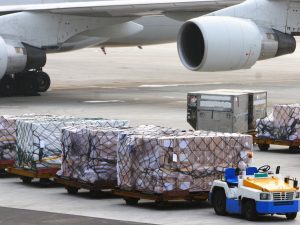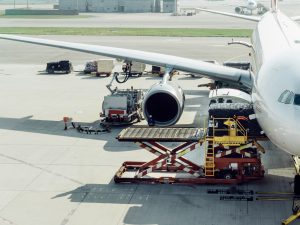The upcoming CCUB event in Hyderabad on 18 and 19 September is set to bring together leading stakeholders from the logistics, supply chain and air cargo industries to deliberate on the future of temperature-controlled logistics in India. With demand for reliable cold chain infrastructure rising across sectors such as pharmaceuticals, perishables, food processing and e-commerce, the event will serve as a vital platform for industry leaders, technology providers, policy makers and logistics professionals to exchange insights, showcase innovations and explore new business opportunities. India, being one of the largest producers and exporters of perishable goods and a global hub for pharmaceutical manufacturing, requires robust cold chain systems to maintain product integrity, ensure compliance and meet international quality standards. Panel discussions, technical sessions and networking opportunities will cover critical topics such as sustainable cold chain models, integration of renewable energy, automation in warehousing and multimodal connectivity. The event will also provide insights into government initiatives and policy frameworks supporting cold chain development, with a focus on reducing logistics costs and enabling India’s vision of becoming a reliable global supply chain partner. By bringing together diverse voices from the cold chain ecosystem, the event will play a key role in shaping the roadmap for innovation-driven, efficient and sustainable cold chain solutions for India’s logistics and air cargo industry.
Read More »Improved road infra, EVs will reduce logistics cost’
Electric vehicles, technology, e-commerce will drive growth of the logistics industry and boost economic development of the country. We are developing sustainable MMLPs, e-highways, we are reducing cargo transit time, which will help reduce logistics cost. We are developing National highways, launching EVs it will automatically reduce cost. Automobile, aviation industries are also growing tremendously,” said Nitin Gadkari, Union Cabinet Minister for Road Transport and Highways, GoI while unveiling report titled, titled ‘Express Industry in India 2025: Powering India’s economy, connecting businesses and markets.’ He added, “We need to start electric cold chain trucks also. Electric vehicles are very cost effective.” The report commissioned by The Express Industry Council of India (EICI) and KPMG focused on the sector’s expansion from USD 3 bn in 2017 to USD 9 bn in FY 2025, recording a compound annual growth rate of 12-15 per cent. It projects that market will double to between USD 18 and 22 bn by FY 2030.
Read More »Air cargo demand from APAC to US surges: WorldACD
According to the latest report from WorldACD, volumes between Asia Pacific and the US showed signs of life in recent weeks, while from Europe, figures have weakened, potentially a sign of volumes rebalancing as a result of the US finalising more tariff arrangements. Figures from WorldACD show that chargeable weight between China and the US increased by 1 per cent in the week ending August 10 (week 32), following flat figures in week 31 and a 5 per cent increase in week 30. In addition, demand from China to the US increased by 5 per cent year on year in week 32 – the first increase compared with last year since mid-April. In contrast, export tonnage from Asia Pacific to Europe has now declined for four weeks in a row, led by declines from China, South Korea and Indonesia.
Read More »FedEx, IIT Madras opens SMART centre for logistics
Federal Express Corporation (FedEx) and the Indian Institute of Technology Madras (IIT Madras) have inaugurated the FedEx SMART Centre (Supply Chain Modelling, Algorithms, Research and Technology Centre) on the institute’s campus. The innovation hub will focus on developing sustainable, technology-driven logistics solutions. Backed by a five-year, $5 million grant from FedEx, the Centre will integrate cutting-edge research, advanced digital tools and industry expertise to reimagine supply chains for greater agility, resilience and environmental responsibility. The inauguration was led by Kami Viswanathan, President, Middle East, Indian Subcontinent and Africa (MEISA), FedEx, along with Nitin Navneet Tatiwala, Vice President, Marketing, Customer Experience and Air Network, MEISA, FedEx, Prof V Kamakoti, Director, IIT Madras and Prof Ashwin Mahalingam, Dean (Alumni and Corporate Relations), IIT Madras.
Read More »‘Improving quality, scaling up infra, embracing tech crucial’
The ongoing supply chain shocks, geopolitical tensions and tariff escalations have pushed the world toward regionalisation,” said Amit Maheshwari Founder & CEO, Softlink Global. He added, “in this context, India’s ‘Vocal for Local’ and ‘Make in India’ initiatives are not just patriotic slogans—they are strategic levers for resilience. But let’s be clear: shifting trade dynamics overnight is not easy. Indian manufacturers and exporters will need to adapt fast—by improving product quality, scaling up infrastructure and embracing digital technologies. This shift is less about self-reliance in isolation and more about strengthening India’s role as a dependable node in the global value chain. Technology will be the backbone of this transition. From factory automation to digital logistics platforms that unify documentation, compliance and trade finance, tech-led efficiency will define who thrives in the new era. Yes, the industry will cope. But only those who act, adapt and automate will lead. The world is rethinking trade. India must not just respond—we must lead.”
Read More »Jeena & Salesforce unite to drive digital transformation
Jeena & Company announced a strategic collaboration with Salesforce to accelerate its digital transformation journey forward. This collaboration will help Jeena & Company unlock deeper customer intelligence, data driven decision making and consistency across teams. As part of the first phase, Jeena & Company is deploying the Salesforce Sales Cloud to enhance sales visibility and enable faster, more integrated engagement across its logistics network. The platform will empower sales teams with real-time visibility across every stage of the deal cycle, helping drive quicker closures and improve conversion rates. With a single source of truth for customer data through Salesforce Cistomer360, Jeena & Company will deepen customer engagement, personalise outreach and unlock recurring revenue opportunities. With a legacy of over 125 years and presence across critical freight and logistics verticals, Jeena & Company is now future-proofing its operations by tapping into the full potential of Salesforce’s trusted, scalable and AI-ready platform. This marks a strategic shift from legacy systems to intelligent workflows that deliver connected, data-rich, and consistent experiences for customers and partners alike.
Read More »BLR Airport records surge in mango exports by 12% in FY 2025
Kempegowda International Airport Bengaluru (BLR Airport) has concluded its most successful mango season, exporting 921 MT of mangoes globally. This represents a 12 per cent increase over last season — the equivalent of 31.5 lakh mangoes shipped in FY 2025. Sourced from the lush mango belts of Karnataka and neighbouring regions, BLR Airport helps deliver this golden harvest from local orchards to consumers worldwide. This season’s success reflects BLR Airport’s growing role as a global hub for perishables. Shipments reached 51 international destinations, a 21 per cent increase from last year, with 19 new destinations added to the network. A total of 24 airlines facilitating mango exports this season. Top five international destinations include Dulles (IAD) Dallas–Fort Worth (DFW), San Francisco (SFO), Chicago (ORD) and Seattle (SEA). Satyaki Raghunath, Chief Operating Officer, Bangalore International Airport Ltd (BIAL), said, “At BLR Airport, we take great pride in being a trusted link between our farmers and global consumers. The success of this mango season speaks to the collaborative efforts of our regulatory bodies, airline partners, cargo handlers, trade promotion councils, trade bodies and farming communities.”
Read More »‘Tariffs will majorly impact agri, electronics & leather good exports’
Praveen Manoharran, MD & CEO, Breezonica Logistics and Warehousing LLP said, “The major impact is going to be on the Jewellery and precious stones segment, as pharma and electronics are exempt from the US Tariffs. It was evident in the Modi’s pitch at Surat, which is the top exporter to USA. Since Jewellery and precious stones fall under luxury segment it is not going to be of major impact due to tariffs and recently Trump said Gold is exempt from the tariffs. Luxury segment buyers see the craftsmanship and the uniqueness in the product, unlike Pharma industry for quality and compliance, unlike electronics industry which looks for quality, compliance and cost effectiveness. The top 3 major export sectors from India to USA are Jewelry & precious stones, Pharma & Electronics. “Vocal for Local” pitch is going to impact the FMCG, QSR, Liquor, Dairy & Cosmetics segments wherein the USA companies have lot of market share in India. This is intended to up the pressure on the POTUS, Donald Trump. Vocal for Local pitch is going to pressure the American companies in the above segments. As you can see that Campa Cola, the Reliance brand is aggressively taking on Coca cola & Pepsi by exclusive tie ups in Domestic Airports & Metro stations across India which will impact the sales of American Beverages giants along with Vocal for Local Pitch. This pressure tactic might make the US companies to pacify the POTUS in the long run. The tariffs is going to have pressure on the Indian exports of agri commodity exports, handicrafts, leather goods which are going to less impact on the total exports from India but definitely on the livelihood …
Read More »‘ Domestic suppliers will need rapid capacity expansion, investment in automation and adherence to international compliance’
Balagopal Balachandran, National Head – Air Freight, FEI Cargo said, “In the mercurial world of business, uncertainty is a constant companion and ready to strike when least expected. As the world engage with unpredictable supply chains, rising tariffs and renewed trade tensions, Indian manufacturers stand at a crucial crossroads. In a world of shifting tariffs, trade wars, geopolitical conflicts and fragile supply chain, India’s Vocal for local and make in India initiatives are more than policy slogans, they are twin engines of resilience and growth. By strengthening domestic manufacturing , improving global competitiveness and uncovering newer markets, these strategies ensure India is not just a participant in the new trade order but a driver of it. The path ahead will be bold but not easy. India’s deep rooted entrepreneurial spirit offers a unique edge ; the ability to turn challenges into opportunity. The new era of manufacturing is not simply be about making in India it will be about making Indian goods world class, globally competitive and respected for their quality and durability. The shift means rethinking of sourcing, production models, distribution networks, newer markets and so on. Domestic suppliers will need rapid capacity expansion, investment in automation and adherence to international compliance to remain competitive. In the short term, challenges will include higher raw material costs, slower market adaptation and the challenge in replacing established global supply chains . However, in long term , Vocal for Local and Make in India can build economic resilience, reduce external vulnerability, and position India as both a reliable domestic base and a competitive global player. The message is clear the future of Indian manufacturing is not just about making in India, it …
Read More »‘Scale up domestic manufacturing capabilities to reduce import dependence’
C K Govil, President, ACAAI said, “The industry’s ability to cope with this shift will hinge on agility, collaboration and investment in capacity. With tariff wars and supply chain disruptions pushing costs up and creating uncertainty, Vocal for Local and Make in India offer both a challenge and an opportunity. Manufacturers and agents will need to re-engineer sourcing strategies, diversify supply chains and scale up domestic manufacturing capabilities to reduce import dependence. This transition will require government–industry partnerships to ensure policy stability, infrastructure upgrades, and skill development. While short-term pain is inevitable due to higher costs and adaptation time, in the medium to long term, the shift could strengthen India’s manufacturing ecosystem, boost exports, and create more resilient trade pathways that are less vulnerable to geopolitical turbulence.”
Read More » Cargo Breaking News
Cargo Breaking News









